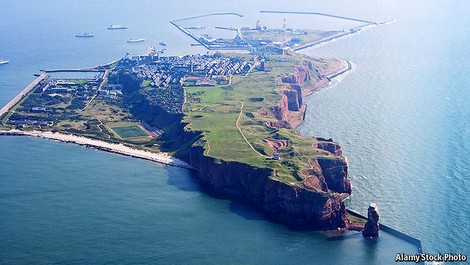Your podcast discovery platform
Curious minds select the most fascinating podcasts from around the world. Discover hand-piqd audio recommendations on your favorite topics.

piqer for: Climate and Environment Global finds Globalization and politics
I'm a freelance journalist, currently based in Madrid. I used to be a News Producer at CNBC in London before, but I thought a little bit more sun might do me good. Now I write for several news organizations, covering a range of topics, from Spanish politics and human rights for Deutsche Welle to climate change for La Marea.
Geopolitics On Repeat: Is China Replicating The History Of A Tiny German Archipielago?
Last July, when a court in The Hague ruled against China's ambitions in the South China Sea, the reaction from Beijing was quite expected. The Ministry of Foreign Affairs said that no international court has jurisdiction over what they consider it's ancestral Chinese land. They were referring to the Spratly Islands, the Paracels and a series of other islands and atolls in an area that are currently open to international sea traffic. They form a highway used by over half of the world's commercial shipping, among other massive geopolitical perks.
The US, of course, is not happy with China's increasingly ubiquitous presence in the South China Sea. At the same time, China's sphere of influence in the area is growing, and it's not completely unthinkable that the Middling Kingdom will eventually claim regional supremacy. This would be disastrous for Washington.
This book review from The Economist brings our attention to another extremely important body of water, and the ambitions of one rising power to challenge another well established world power based on ancestral usage of a tiny archipelago. We're talking about Germany and the Heligoland Archipielago. A tiny group of islands with massive geopolitical importance, they became a symbol of German nationalism from the time of Otto Von Bismark until the fall of the Third Reich.
The article tells the fascinating story of these tiny islands and draws obvious parallels with China's ambitions. It remains to seen if the White House will give in or follow Churchill's advice: "There must be no more Heligolands."
